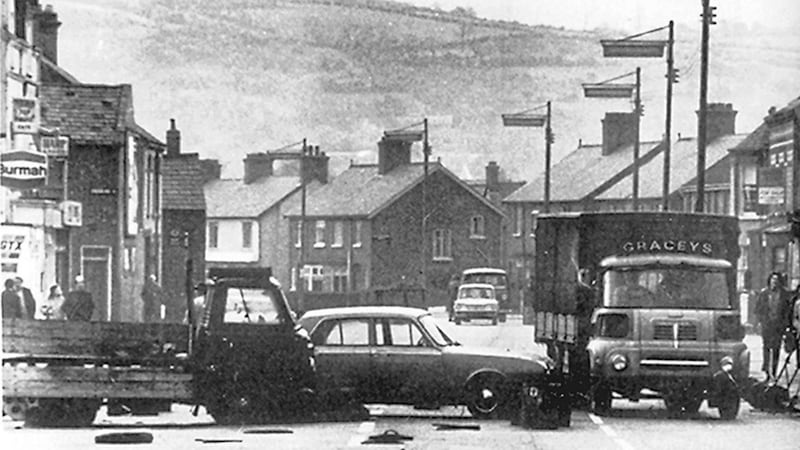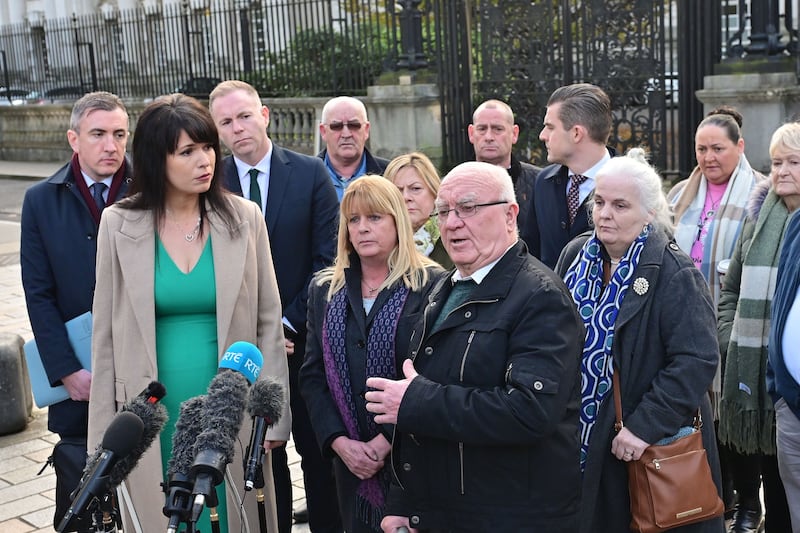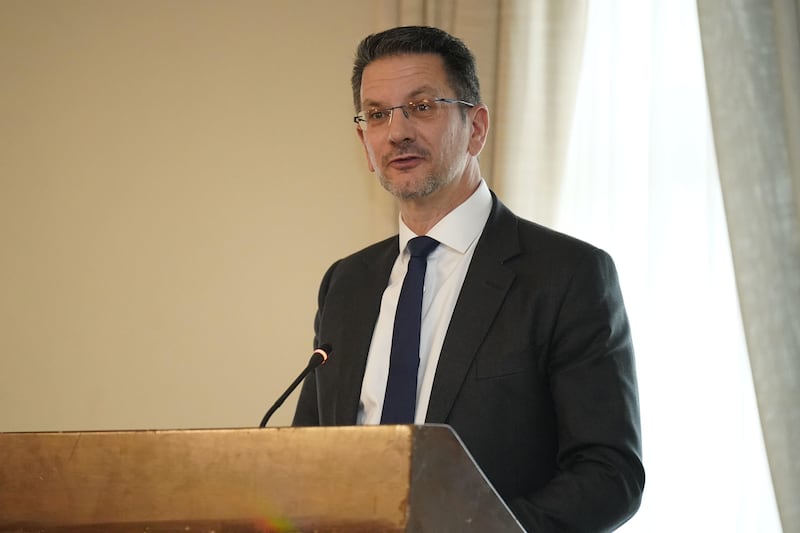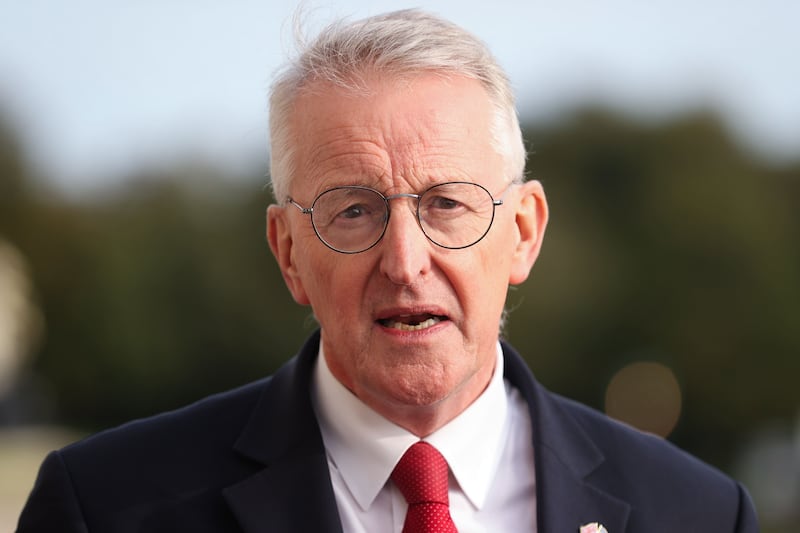It will be impossible to complete all planned inquests relating to Troubles deaths before a cut-off date set by the Government’s legacy Bill, a judge has said.
Mr Justice Scoffield made the remarks as he agreed to an application to move forward the scheduling of an inquest into the deaths of five people killed in shootings involving the British Army in west Belfast more than 50 years ago.
He said that he was aiming to complete the hearing into what victims’ relatives refer to as the Springhill Massacre by May, but added that he could not guarantee that would be possible.
The Government’s controversial legacy Bill, which is awaiting royal assent, will mean that all legacy inquests which have not reached the point of verdict by May 1 2024 must be halted.
Three teenagers, a parish priest and a father of six were killed in the Springhill/Westrock area on the night of July 9 1972.
The fresh coroner’s probe into the deaths was ordered by Northern Ireland’s attorney general in 2014 after an original inquest in 1973 returned an open verdict.
Those who died were John Dougal, 16; Patrick Butler, 37; Fr Noel Fitzpatrick, 42; David McCafferty, 15; and Margaret Gargan, 13.
The inquest opened earlier this year and heard that the shootings took place in disputed circumstances.
In a review hearing, Mr Justice Scoffield said he was going to grant an application by the victims’ families to bring forward future hearing dates.
He said: “As I understand it, there has been a lot of coverage about this recently, the Northern Ireland Troubles Legacy and Reconciliation Bill has now passed all of its parliamentary stages and is simply awaiting royal assent.
“Once that has been given and the Bill becomes law there will be an obligation on coroners conducting inquests into deaths which resulted directly from the Troubles which were initiated before the relevant day, May 1 2024, to not progress the conduct of the inquest and indeed to close it on that day.
“That is a hard cut-off point.
“That is unless the only part of the inquest which remains to be carried out is the coroner or jury giving the final determination.
“I am working on the basis that that obligation would apply to this inquest.
“That, of course, is the reason why the application was made to bring forward the listing date.”
Mr Justice Scoffield said the wider context was that there were a significant number of legacy inquests which families would be keen to have concluded.
He added: “Simply as a matter of fact and common sense it is not going to be possible to complete them all.
“There are limited resources available in all kinds of ways, in terms of coroners, courtrooms, court staff, personnel within the Legacy Inquest Unit, personnel within the disclosure providers, which I know is an issue of particular concern.

“I am keen, in common with other coroners, not to unduly or unfairly raise expectations about progress which might then not be possible.”
Mr Justice Scoffield said he had decided to bring forward the scheduling following consultation with the presiding coroner Mr Justice Humphreys and the Lady Chief Justice Dame Siobhan Keegan.
He said: “I want to do all that I can, reasonably and realistically, to try to complete this inquest before the May 1 2024 date now that it has started and taken a significant degree of evidence.
“That aspiration should be my starting point.”
But Mr Justice Scoffield added: “There are no guarantees that this inquest will be concluded in time, but that is my aim.
“I have no doubt there will be other coroners who will have to and will take the view that the inquests for which they are responsible do not have a reasonable prospect of concluding and which will therefore not be prioritised in the same way.
“That should, I hope, ease the burden of resources in respect of those cases which are proceeding.”
He said he would aim to deal with the evidence of remaining civilian witnesses before Christmas and military witnesses in late January at the latest.








